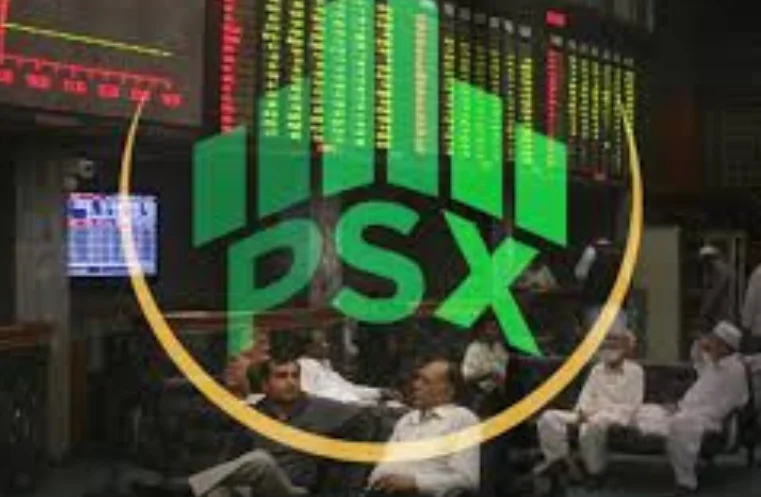Islamabad, Feb 3: The Pakistan Stock Exchange (PSX) witnessed a sharp downturn on Monday as the benchmark KSE-100 index plunged by 1,100 points in intraday trading, reflecting investor concerns over global trade tensions and economic policies.
At 12:50 PM, the KSE-100 index stood at 113,077.26 points, marking a decline of 1,178.46 points (1.03%) from the previous close of 114,255.72. Market analysts attributed the bearish sentiment to fears surrounding new US trade tariffs and geopolitical instability.
Investor Concerns Over US Trade Policy
Awais Ashraf, Director of Research at AKD Securities, explained that investors are reacting to the potential implications of US trade policies under Donald Trump’s “America First” approach. The newly imposed tariffs on major trade partners, including Canada, Mexico, and China, have fueled concerns of a global economic slowdown.
Read More:
PTA: We Can’t Stop the Import or Smuggling of Indian Phones
“These tariffs are expected to increase inflation in the US while slowing economic growth. The resulting decline in commodity prices and sustained high interest rates could have far-reaching effects on emerging markets like Pakistan,” Ashraf noted.
However, he highlighted that Pakistan’s import-driven economy could benefit from lower commodity prices, while the suspension of foreign aid is unlikely to significantly impact overall financial inflows.
Impact on Pakistan’s Economic Outlook
For FY25, Pakistan has budgeted $176 million in total grants, representing only 1% of the external funding target of $19.34 billion. The country has already secured $38.3 million in grants from the US within the first five months of the fiscal year, surpassing the annual budgeted amount of $21 million.
Despite these financial inflows, market uncertainty has persisted due to falling foreign exchange reserves, a depreciating rupee, and missed tax collection targets. Additionally, large-scale manufacturing continues to contract, despite a significant reduction in the State Bank of Pakistan’s policy rate from 22% in June 2024 to 12% over six consecutive cuts.
Global Market Reactions
The US-imposed tariffs have triggered sell-offs in global markets, particularly in Asia. Export-reliant stocks suffered as Asian currencies slumped. The Mexican peso hit a three-year low, the Canadian dollar dropped to a 22-year low, and the Chinese yuan fell to a record low.
Stock markets in Japan, South Korea, and Taiwan also saw significant losses, with major chipmakers and automakers facing declines. The Indonesian rupiah and Thai baht were among the biggest currency losers in the region.
Future Outlook for PSX
Market analysts predict continued volatility in the PSX, driven by both global trade policies and domestic economic conditions. Until there is greater clarity on US trade measures and Pakistan’s economic trajectory, investor sentiment is likely to remain cautious.
In the coming weeks, the PSX’s performance will hinge on global trade developments, the rupee’s stability, and government efforts to boost investor confidence through policy measures and economic reforms.









